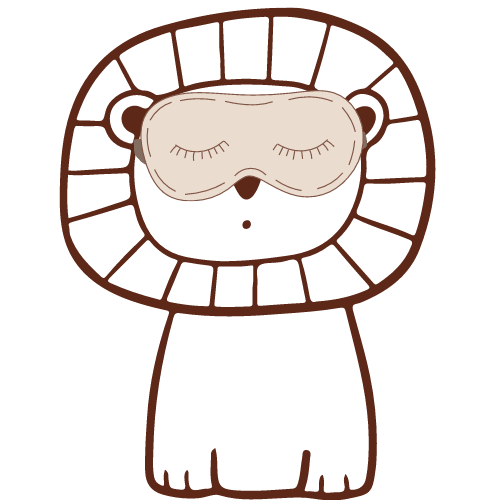Scary dreams, frightful characters and screaming children- child nightmares can be a parent’s worst nightmare. But are they having a nightmare or is it something else? Is it a nightmare or a night terror?
Nightmares:
Your child’s imagination will really start to develop and grow around 2 years old. Before then they might have been pretending and playing, but at this age they can start envisioning things and people, situations, and stories. This can be fuelled by things they’ve heard, seen on TV or stories in the books they are being read. The growing imagination is an important part of play, but it can impact sleep as it can give fire to the already active toddler mind, resulting in nightmares.
Nightmares are scary dreams and typically happen in the second part of the night (often after midnight) where your child wakes up, feeling scared or upset. They’ll often call out to you or come into your room and need your reassurance that things will be OK. They will remember having the bad dream and may remember the details of their nightmares in the morning.
If your child does have a nightmare, gently guide them back into their room or to lay back down into their cot, reassure them with a kiss and cuddle and help them back to sleep, using your normal settling method. Starting a new way of settling (staying in the bed with them until they fall asleep, extra bottles of milk etc.) could quickly develop a new habit where nightmares become an excuse which makes it difficult to then know whether it is a real nightmare or a ‘nightmare’ to get that extra cuddle. You’ll need to balance being empathetic and responsive to their needs, but be aware and understanding if the nightmares become a stalling tactic.
You can help relieve some of your child’s fears before bed by talking about lovely things that have happened in their day and giving them something positive to look forward to tomorrow, asking if there is something on their mind making them anxious or upset, talking about the fairies that sprinkle fairy dust over them when they sleep to keep the safe (bonus points for going back later and sprinkling some glitter) using ‘monster spray’ (nicely scented water) under the bed and in the wardrobe to keep the monsters away. Use your imagination and get them to suggest ways to help as well!
Night terrors:
Night terrors are different to nightmares. Night terrors are a partial arousal, where your child is somewhere between awake and asleep. Their brain is still asleep but their body is away. They may seem awake, moving around and talking or making noises, but they aren’t awake or conscious enough to know what is happening, who you are in that moment or remember anything in the morning.
Your child may thrash around, shout, push you away or seem ‘possessed’ during a night terror. It can be scary and upsetting for you to witness your child in a state like this, but it is important not to wake them up. If you wake them during a terror, they are likely to become disorientated and upset about what they are doing or can prolong the night terror episode. Instead, ensure that they are safe and guide them back to bed or help them lay back down and help them off to sleep again. Remember, they won’t remember this in the morning so it’s best not to bring it up or talk about it, doing so may make them upset or embarrassed.
Your child may thrash around, shout, push you away or seem ‘possessed’ during a night terror. It can be scary and upsetting for you to witness your child in a state like this, but it is important not to wake them up. If you wake them during a terror, they are likely to become disorientated and upset about what they are doing or can prolong the night terror episode. Instead, ensure that they are safe and guide them back to bed or help them lay back down and help them off to sleep again. Remember, they won’t remember this in the morning so it’s best not to bring it up or talk about it, doing so may make them upset or embarrassed.
If nightmares or night terrors become chronic and are having a significant impact on your child’s sleep and their daytime mood and functioning then speak with your GP. I am also available to support your child and family through nightmares and night terrors- together we can explore the reasons for them happening and adjust their current sleep patterns to help them (and you) have a restful night.
If nightmares or night terrors become chronic and are having
a significant impact on your child’s sleep and their daytime mood and
functioning then speak with your GP. I am also available to support your child
and family through nightmares and night terrors- together we can explore the
reasons for them happening and adjust their current sleep patterns to help them
(and you) have a restful night.

